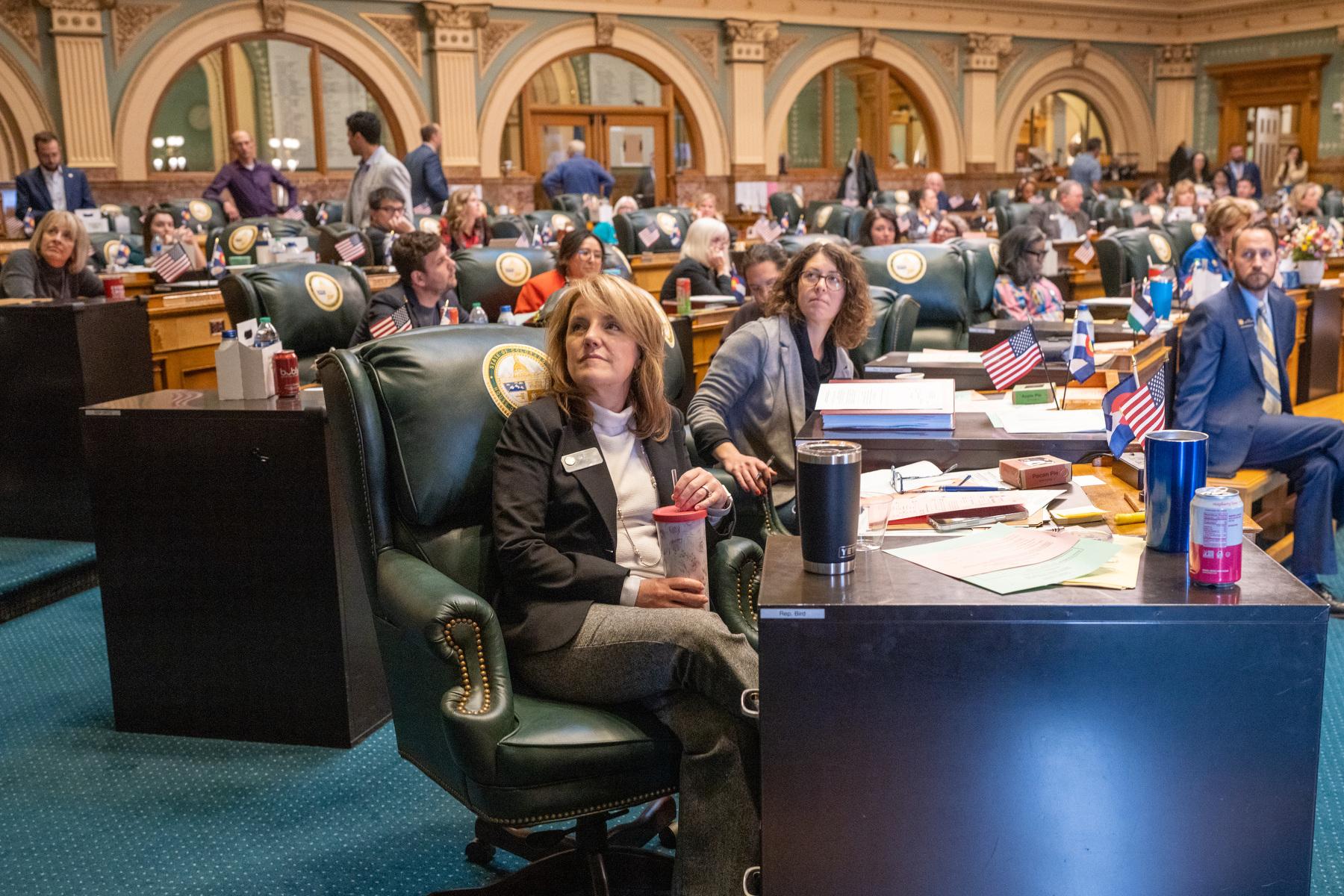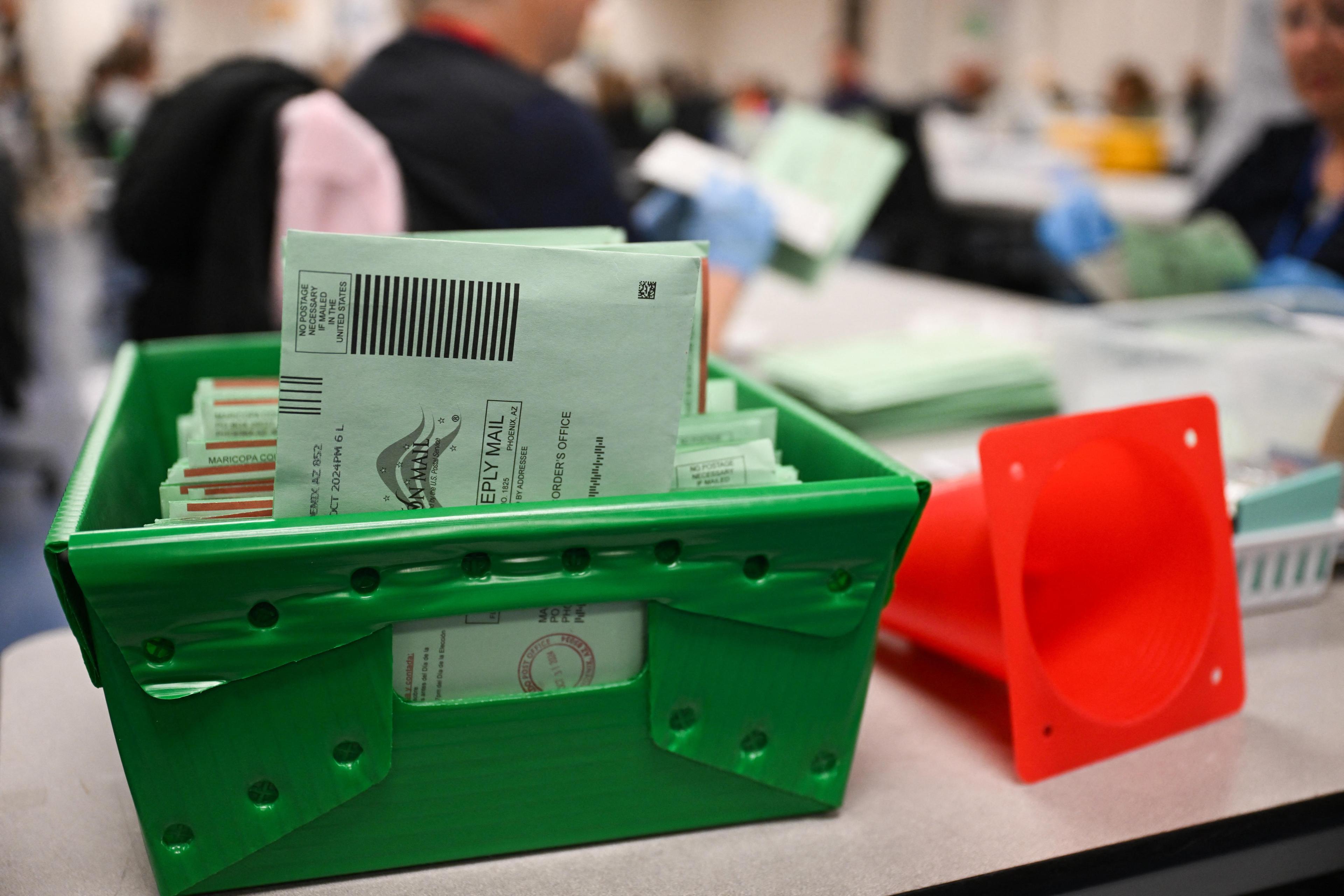
Updated 2:01 p.m. Aug. 15, 2024
Colorado Governor Jared Polis is calling state lawmakers back to the Capitol later this month for a special session on property taxes.
The hope is that the legislature can implement enough tax cuts to head off two ballot measures that, if passed, would substantially reduce property collections statewide. Local governments, schools and fire districts have said the proposals would devastate funding for critical public services.
“We want to build a broad enough coalition to create stability over time so that homeowners know that they won't have huge increases in their property taxes and that we don't gut the funding of our schools and our fire districts,” said Polis in an interview with CPR News Thursday morning.
The special session will begin on Aug. 26 and is expected to last three days. Lawmakers have a narrow window to act, as Sep. 6 is the last day to withdraw an initiative before ballots go to the printer. Polis said he won’t sign any deal unless the measures are pulled.
“I want confirmation that the ballot issues are withdrawn from the Secretary of State's office prior to signing, and there'll be plenty of opportunity after passage to make sure that occurs.”
Polis said discussions about a special session really ramped up in the last few weeks.
“A lot of more sensible folks on both sides said, ‘Hey, isn't there some way we can work this out versus having to vote on all or nothing?”
The business group Colorado Concern and the conservative interest group Advance Colorado are behind the two ballot measures, initiatives 50 and 108. Initiative 50 would allow the total dollars collected statewide in property taxes to increase by no more than four percent each year. Initiative 108 would permanently reduce assessment rates for homes, businesses and other properties and require more state money to go into schools to make up for the lost taxes.
The groups argue a sharp run-up in property values during and after the pandemic shows why Colorado needs to make drastic changes to its tax policy to protect property owners from future shocks. A document obtained by CPR News indicated the groups are prepared to spend around $8 million making their case to voters.
“We can’t force lawmakers to do anything, it’s their choice to engage,” said Advance Colorado’s Michael Fields in an interview with CPR. “We’ve always been prepared to run our measure. We’ve always had the same position that we want to cap property taxes.”
With the upcoming special session, lawmakers’ goal will be to make enough further changes to the tax system to keep 50 and 108 off the ballot, while not limiting revenues beyond what schools, local governments and other local governments say they need to function well.
Fields said that if the legislature does find an acceptable compromise, initiative backers would no longer go full steam ahead this fall.
“Our end goal has always been to cut and cap property taxes — and to ensure a spike like the one we just saw never happens again,” said Fields.
Lawmakers already agreed to significant property tax cuts during their regular session earlier this year. Republican and Democratic leaders all strongly backed that deal, but at the time Advance Colorado and Colorado Concern rejected it as not going far enough.
The legislature also temporarily reduced property taxes during another special session in November of last year. And policymakers sound frustrated that the issue keeps coming up.
“We don't want to be in this scenario where every session, every year we're battling these things out,” said Polis. “This is the final piece of replacing the Gallagher amendment, which had its flaws but did last for two decades. And I'm hopeful that with the broad coalition that we'll finalize these changes.”
For their part, Senate Republican leaders welcomed the call for a special session, noting that while they supported the property tax cuts during the regular session, Republicans always wanted to see the state go further.
In a statement, Republican Senate leaders said, "Now is the time to work on further lowering property taxes, which have skyrocketed in Colorado in the last few years. We are eager to return to the Gold Dome later this month and continue our efforts to bring permanent and substantial relief for Colorado’s taxpayers by lowering property valuation rates for both residential and nonresidential properties."
Democratic Sen. Chris Hansen of Denver plans to be the main sponsor of whatever proposal lawmakers decide to put forward. In an interview with CPR News earlier this week, Hansen said a big focal point of negotiations was making sure any deal with the business interests will be lasting.
“Meaning if we strike a compromise in the near term, does that mean that the groups involved with [Initiatives] 50 and 108 and their allies are not going to just bring us back to this spot year after year after year, which historically they have done,” Hansen explained.
Not everyone is on board with the special session. In a video posted on TikTok earlier this week, Democratic Rep. Stephanie Vigil of Colorado Springs said it was “weird” for the state to be taking the reins when it’s local governments that collect the tax. She added that she doesn’t think tax rates are the real problem.
“What's actually happened that has caused some people's property tax burden to be unusually high is that property values have skyrocketed in a short amount of time. That's a function of our housing shortage. That is not a function of state tax policy,” said Vigil.
She also accused the backers of the two initiatives of strong-arming the governor into calling a special session.
“What's the matter? You don't think your initiative's going to pass? Now you want to coerce the governor into calling a special session so that legislators can come talk about it,” Vigil said. “Why?”
Polis disputed that characterization.
“No one is strong-arming anybody. When there's an opportunity to bring people together, we should take it.”
In response to Vigil’s comments, Fields said if policymakers weren’t worried that these initiatives might pass they wouldn’t be working on a compromise right now.
While Democrats hold wide majorities in both chambers, recent changes to property tax laws have had strong bipartisan support. However, special sessions can be unpredictable. State rules require lawmakers to stay focused on the session’s stated purpose, but lawmakers do have the authority to introduce other bills, as long as they’re related to that topic. That means there could potentially be multiple property tax proposals up for discussion.
This unexpected special session will bring the current group of lawmakers back together at the statehouse one final time. Between term limits, lost primaries or of their own choice, roughly a third of the legislature will be leaving after November.
Editor's Note: This story has been updated with reaction from Senate Republicans.
- Does Colorado really need another special session on property taxes?
- Why Gov. Jared Polis might call a special session on property taxes — for the second time in a year
- It looks increasingly likely that lawmakers will come back to work soon for a deal on property taxes
- Deal, and no deal: Why one of the legislature’s biggest bills likely won’t prevent a ballot battle



